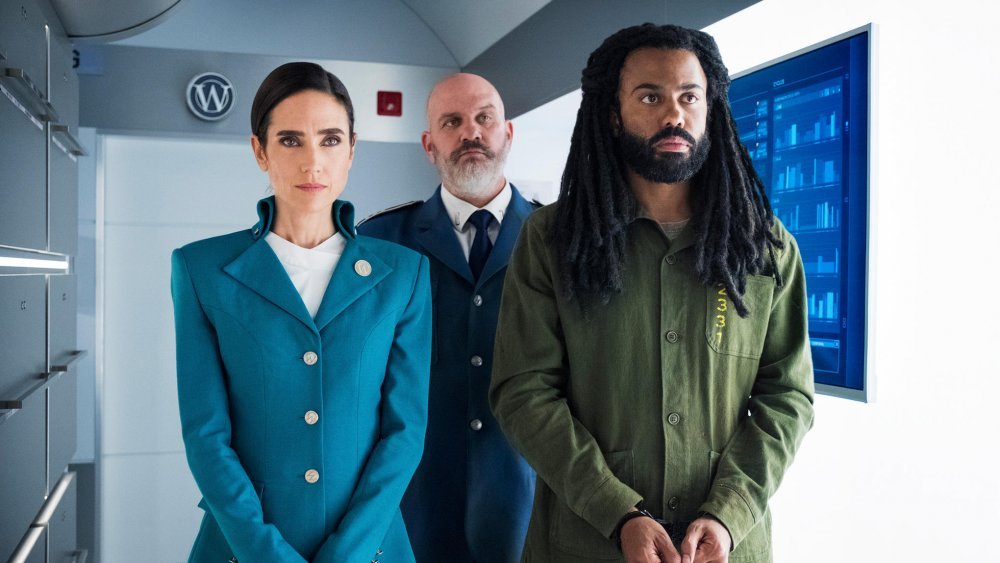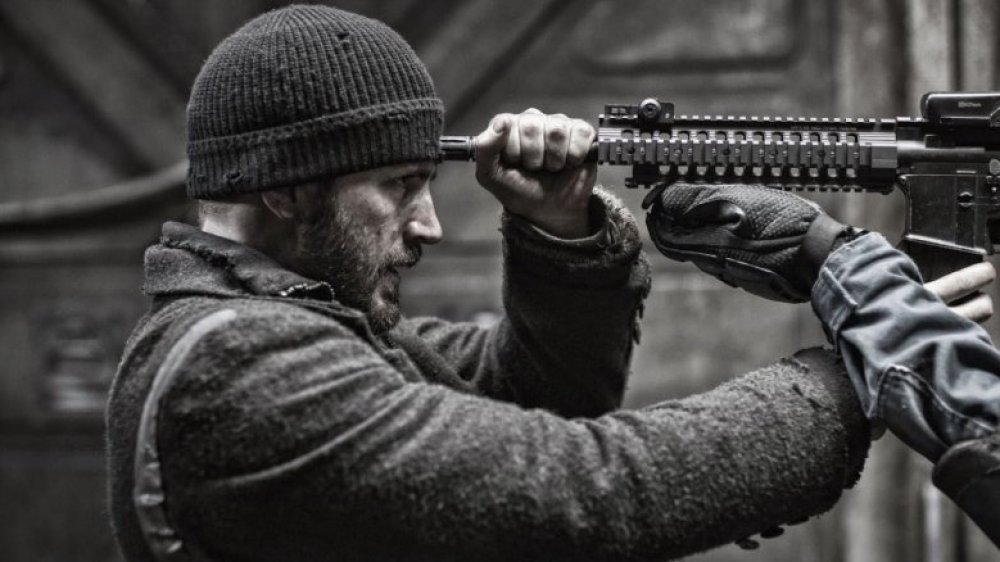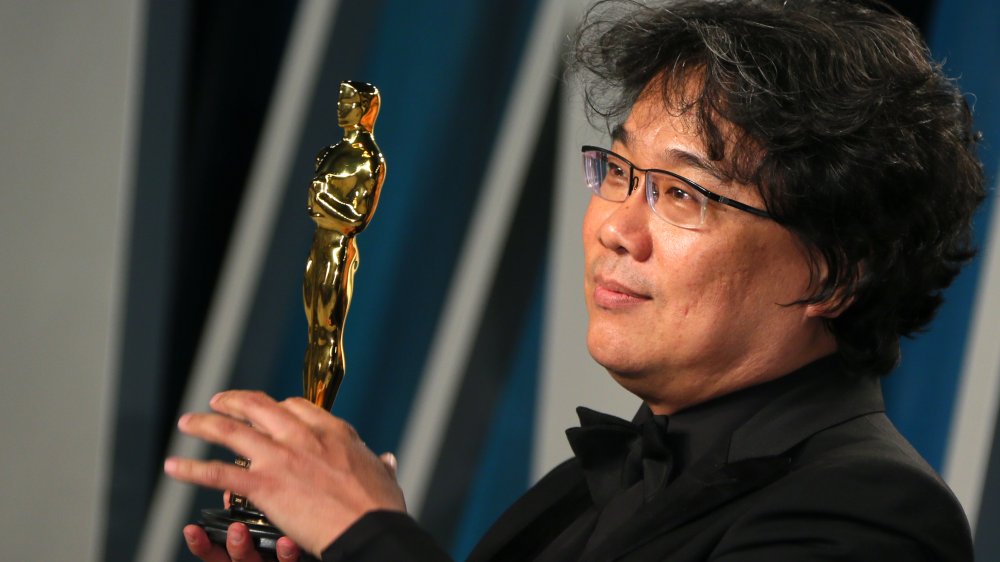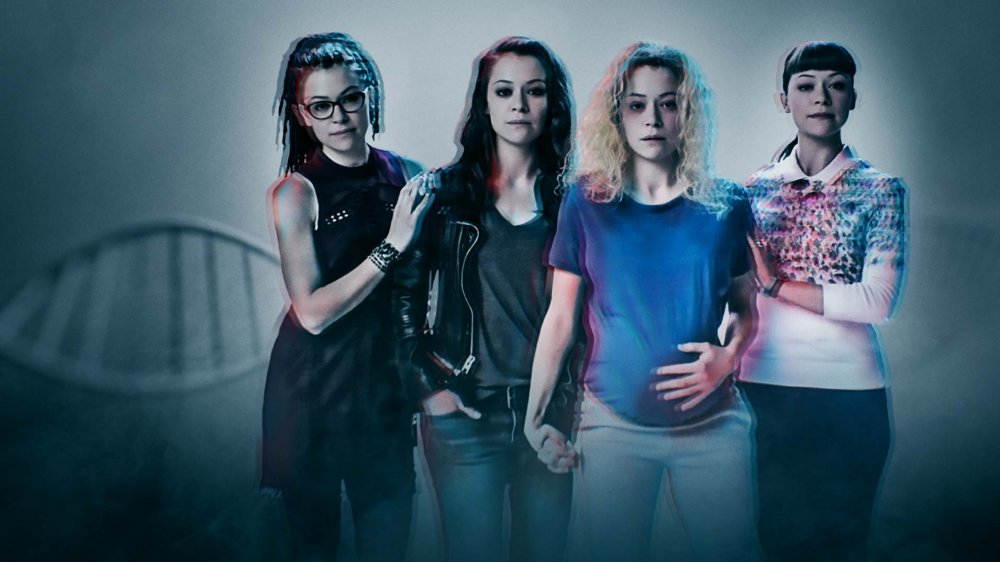Writer/producer Graeme Manson Discusses The Snowpiercer TV Series And Orphan Black - Exclusive Interview
Up until now, writer and producer Graeme Manson has been best known for his work on the BBC cult hit Orphan Black. But TNT's Snowpiercer series could change that.
Based on a French graphic novel from the 1980s, Snowpiercer first gained mainstream recognition when Oscar-winning director Bong Joon Ho turned it into a 2013 film starring Chris Evans. In it, the last survivors of humanity have to circle the Earth on the Snowpiercer train in order to stay alive after a major climate disaster creates a global ice age. With 1,001 cars and 3,000 passengers, the train sheds light on the world's class system, with first class ticket-holders living it up at the front while desperate stowaways eat bug-riddled slop in the back, otherwise known as the "tail."
There are big differences between the graphic novel and the movie, and the movie and the series. The movie is a very pinpointed tale of the uprising of the lower class, which plans to storm the train car by car and seize control of the engine room. The TV series, which stars Daveed Diggs and Jennifer Connelly, is a more meandering narrative that expands into various storylines about each class and the staff, even throwing in a murder mystery.
In an exclusive interview with Looper, Manson details how those storylines took shape, how much input Joon-ho had on the series, and how Snowpiercer differs from his work on Orphan Black.
Stepping out of the movie's shadow
Would you say the Snowpiercer series stays truer to the graphic novel or the movie?
It's really its own animal. I first came to it when I saw Director Bong's movie and I just loved it. It is one of the craziest action movies I've ever seen. It packs so much message and political punch. When I heard that they were making the series and I had a chance to pitch for it, I went to the graphic novels, and the graphic novels are really packed with a lot of politics and ideas too. They span a lot of time and visit different train cars, and there are a lot of different ideas and characters. I felt that a TV show could create something that would complement the whole thing, hopefully doing what good premium cable does, which is create great character stories and a higher concept. Yet, at its core, Snowpiercer is an action-adventure — fun, edge-of-your-seat-type stuff. That's what I like.
The biggest difference between the show and the movie is the movie focuses on one plot, getting to the front of the train, while the show has multiple plots. As the writer of the pilot and a few other episodes, where did you draw inspiration from for the additional storylines?
That was the fun part of the series, imagining a world that we can introduce the audience to. I wanted to start off like the movie, where you enter from the tail, so that everything the audience sees is new. I love that aspect of the film, where you could open a door and find anything. There was always a sense of discovery.
Obviously, in a TV series, you can't just start in the tail and move to the engine. We wanted to introduce the different classes at once. We want to get to know people in first and second class, understand the train's rules, and begin to understand what the classes have in common, not just the differences they have in terms of privilege. One thing they have in common is grief and the trauma of losing the world, and the guilt of losing everyone they know. Each character is carrying a version of that trauma.
One of the great twists in the series is that it's seven years after the end of the world [10 years before the movie takes place], and the world that ended is our world. It keeps it contemporary. Some people are still holding onto the past, while others are beginning to turn away from what sustained them in the past.
Did any other movies or television shows inspire your work on the series?
I've always loved Battlestar Galactica, which had big ideas and was very exciting and had great production value. Snowpiercer is on a train, but it's a little bit like a space sci-fi story.
Getting Bong Joon-ho's stamp of approval
How much input did Bong Joon Ho actually have?
Well, he's an executive producer, and he came a few times in the first season. He saw the sets and watched the pilot, and we got his blessing. It was great to meet him, but he's not creatively involved in the day to day of the show.
Did he give you any insight or inspiration?
No, but he really enjoyed our sets and we talked a little bit about the sense of discovery that I loved in the movie, that you could open a door and find anything. He expressed that that part was a good thing to hold onto with the show, so that there's this constant possibility to wow the audience with what's next. He gave his stamp of approval, and I think that gave us all a boost and let us know we were doing something different but treating it properly.
Did his Oscar success change the behind-the-scenes perspective of the show at all? Is there more or less pressure now, or higher hopes of it being successful?
I don't think so. But it lends some credence to the material. It makes me proud to be tackling the same issues that he did.
Making the leap from Orphan Black to Snowpiercer
You've already filmed season two of Snowpiercer. What can you say about it?
Well, it comes after one hell of a cliffhanger from the first season. For me, the joy of season two was having really spent time with these characters and watching the cast members grow into the characters. It's that thing that happens when a show has been running for a while and you realize that you're telling the story, and that your telling is completely of the world that you're creating. It's of these characters, and the characters are reacting in the way that only they would. I think that's exciting.
This is your first project since Orphan Black. From your perspective, how is this show different from or similar to your work on that?
It's similar in some of the tone, and certainly the pace, the thriller aspects of it. But Snowpiercer is a much different show and a much different gig for me. Orphan Black was my and John Fawcett's original concept, and we made it in Toronto with an almost completely Canadian cast. It was a smaller show. It had more of the feel of The Little Engine That Could. It was a rare beast to start something like that with [star] Tatiana Maslany and have her be able to do something that thrilling. This is much different. It's higher stakes for me. It's my first job in Hollywood.
It's a real honor to get the chance to work with such a big cast, starting with Jennifer Connelly. We've worked closely together, and she's a very, very precise actor and very well prepared. We'd spend lots of time talking script and refining scenes. Alison Wright is another precise actor who can be really funny. I love characters that are really tightly wound, because they're the most fun to poke. Daveed Diggs is an interesting actor to work with too. He's a wordsmith and really likes to get in there, be in the moment, as well. He's very collaborative. The size of the cast is a challenge, but gaining their trust and doing something that we're all proud of has been one of the most rewarding parts of this.
On a more personal note, what TV shows do you enjoy watching in your spare time?
I just finished watching season three of Ozark, and I loved it. I'm also watching the Michael Jordan documentary [The Last Dance] on Netflix. And I've been going back and watching some classics, old comedies and thrillers, and trying to read more books.
Was there a particular film or TV series that sent you down your career path?
If you go way back, it has to be The Six Million Dollar Man that turned me into a sci-fi writer. I was really into early science fiction books like The Island of Doctor Moreau and authors like Aldous Huxley and Mary Shelley. I loved all those classic stories.



